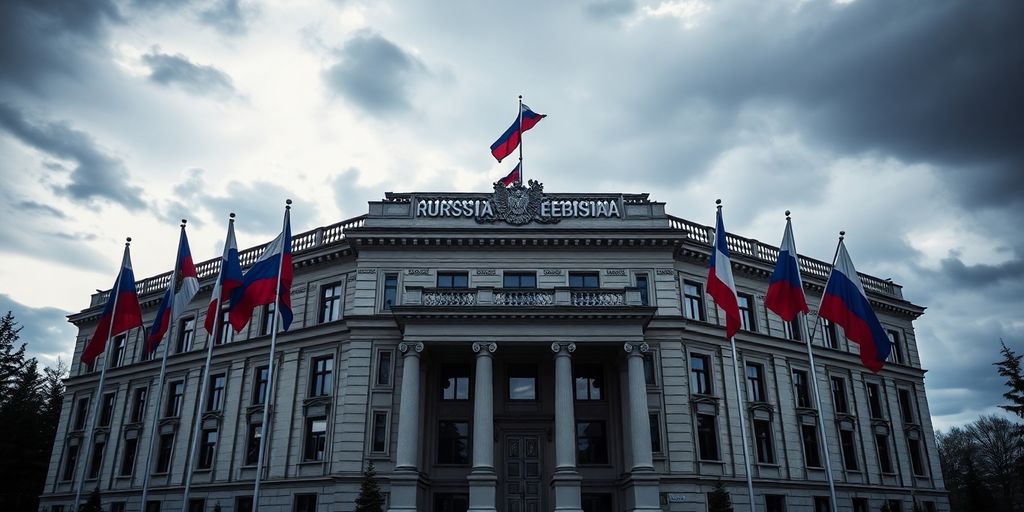The Russian Embassy in Bosnia and Herzegovina has issued a stern warning following a recent meeting between US officials and local parliament members regarding the South Interconnection Gas Pipeline. The embassy criticized the US’s actions as a form of neo-colonialism, raising concerns about Bosnia’s sovereignty and energy independence.
Key Takeaways
- The US has urged the urgent adoption of the South Interconnection Gas Pipeline law in Bosnia.
- The Russian Embassy condemned this move, labeling it as neo-colonialism.
- The meeting excluded representatives from key local parties, raising questions about inclusivity.
- Russia expressed concerns over ongoing discussions at the Peace Implementation Council regarding state property ownership.
Background of the Pipeline Project
The South Interconnection Gas Pipeline is a significant initiative aimed at enhancing Bosnia’s energy independence by facilitating the import of American liquefied natural gas (LNG). This project is seen as a strategic move to reduce reliance on other energy sources and improve regional stability.
During a meeting with US Ambassador Michael Murphy, discussions highlighted the importance of this pipeline for Bosnia’s energy security. However, the absence of representatives from the Croat Democratic Union (HDZ) and the Croat Republican Party (HRS) raised eyebrows, suggesting potential political tensions.
Russian Embassy’s Reaction
In a strongly worded statement, the Russian Embassy accused the US of undermining Bosnia’s sovereignty. They drew parallels to past US interventions, notably referencing a moment when then-Vice President Joe Biden lectured Ukrainian leaders, implying that such actions could lead to detrimental outcomes for Bosnia as well.
The embassy stated, "Today, an unusual event occurred in Bosnia and Herzegovina. The US ambassador, accompanied by emissaries from Washington, delivered a clear lesson in classic neocolonialism." They emphasized that the exclusion of certain political representatives from the meeting was a deliberate act that undermined the democratic process.
Concerns Over State Property Ownership
In addition to the pipeline discussions, the Russian Embassy expressed concerns regarding ongoing talks at the Peace Implementation Council (PIC) about state property ownership. They labeled these discussions as a potential trigger for destabilization in the region, further complicating the political landscape in Bosnia.
The embassy dismissed accusations of Russian malign influence as outdated rhetoric, asserting that their focus remains on fostering cooperation with Bosnia in the energy sector.
US Position and Regional Implications
The US Embassy has defended the pipeline project, emphasizing its importance for reducing energy dependency and promoting stability in the region. The meeting with Ambassador Murphy also included Deputy Assistant Secretary of State for European and Eurasian Affairs Alexander Kasanof, who reiterated the strategic significance of the South Interconnection project.
The PIC’s session also reaffirmed support for High Representative Christian Schmidt, who has been vocal against secessionist rhetoric and actions that threaten Bosnia’s territorial integrity.
Conclusion
The tensions between the US and Russia in Bosnia and Herzegovina highlight the complex geopolitical dynamics at play in the region. As the South Interconnection Gas Pipeline project moves forward, the implications for Bosnia’s sovereignty and energy independence remain a critical concern for both local and international stakeholders.
Sources
- Russian Embassy in Bosnia threatens: Remember this day! – N1, N1 Bosna i Hercegovina.






